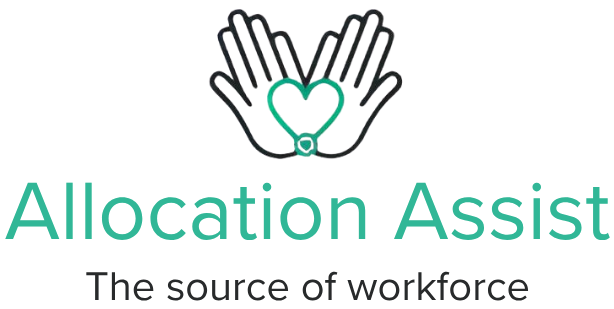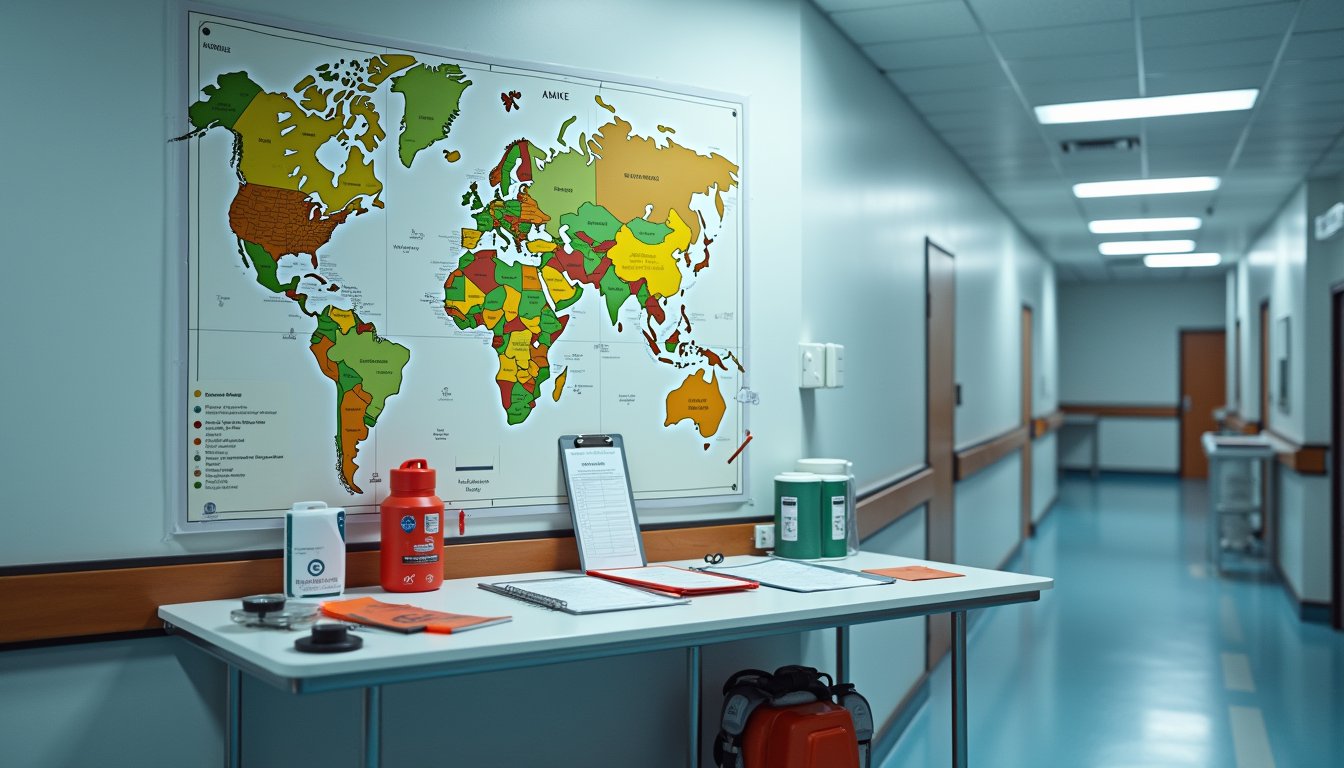As a pregnant healthcare worker, you’re protected by the Pregnant Workers Fairness Act (PWFA) if your organization has 15+ employees. You’re entitled to reasonable accommodations including modified duties, flexible schedules, additional breaks, and ergonomic adjustments. You can request accommodations verbally, and your employer must engage in good-faith dialogue. You’ll have access to a 20-hour prenatal leave bank, lactation support, and protection against retaliation. The following sections detail your extensive rights through 2025.
Understanding the Pregnant Workers Fairness Act (PWFA) in Healthcare Settings

While healthcare workers have long sought extensive pregnancy protections, the Pregnant Workers Fairness Act (PWFA) now provides explicit safeguards for medical professionals managing pregnancy-related limitations.
PWFA overview: The law, enacted in 2022 and effective since 2023, requires healthcare organizations with 15+ employees to provide reasonable accommodations for workers affected by pregnancy, childbirth, or related medical conditions. You’re entitled to modifications like flexible schedules, additional breaks, or reassignment from hazardous duties unless they cause significant operational disruption. Employees can initiate accommodation requests through verbal communication with supervisors or HR representatives.
Healthcare implications: You must engage in an interactive process with your employer to identify suitable adjustments. If you’re experiencing conditions like gestational diabetes or require lactation accommodations, you’ll need to document these needs through medical providers. The PWFA works alongside existing protections from Title VII, ADA, and the PUMP Act.
Essential Workplace Accommodations for Pregnant Medical Staff
In healthcare settings, you’ll find that modified duty options extend beyond basic task adjustments to include specialized accommodations like temporary telehealth assignments and equipment modifications with ante-natal support devices. You’re entitled to structured break periods that accommodate both standard meal times and additional hydration or rest intervals, particularly during long surgical or patient care shifts. Your right to alternate between sitting and standing positions must be protected, especially in roles traditionally requiring prolonged standing, such as operating room duties or extended patient monitoring sessions. The law applies to all medical facilities with fifteen or more employees. Employers must maintain a conspicuous notice location in healthcare facilities informing staff of their pregnancy accommodation rights. Healthcare employers must engage in an interactive process with pregnant workers to determine appropriate workplace accommodations that meet their specific needs.
Modified Duty Options
Healthcare facilities must establish thorough modified duty protocols to protect pregnant medical staff while maintaining operational efficiency. You’ll find various modified task assignments available, from reassignment of physically demanding duties to ergonomic adjustments of your workstation. The law requires employers to engage in good-faith dialogue when determining appropriate accommodations for pregnant healthcare workers. Medical providers can submit written documentation supporting specific accommodations for their pregnant patients. Employers must ensure all medical information remains confidential during the accommodation process.
| Modified Duty | Primary Options | Implementation |
|---|---|---|
| Physical Tasks | Weight restrictions | Max 25 lbs limit |
| Schedule | Shift rotations | Reduced consecutive nights |
| Location | Remote work | Telehealth consultations |
Your facility should provide automated lift assistance devices and establish clear documentation processes for accommodation requests. When medically necessary, you can shift to less strenuous roles like administrative duties or patient education. You’re entitled to essential workstation modifications, including adjustable desks, proper seating, and ergonomic equipment to guarantee comfort during your shifts.
Break Time Requirements
Federal regulations mandate thorough break time accommodations for pregnant healthcare workers through the Pregnant Workers Fairness Act (PWFA) and PUMP Act. Under these break time policies, you’re entitled to flexible scheduling for bathroom visits, rest periods, and medical appointments. Your employer must provide private, non-bathroom spaces for lactation needs with running water and refrigeration. Accommodation guidelines require employers to engage in an interactive process to determine reasonable adjustments to your schedule. These protections apply to all nursing employees, extending beyond just non-exempt workers. You’ll maintain compensation during paid break periods, though additional pregnancy-related breaks may be unpaid unless state law dictates otherwise. Your facility must document these accommodations and post notices about your rights. While employers with fewer than 50 employees may claim undue hardship, they can’t force you to take leave if accommodations are feasible.
Managing Physical Demands and Safety Concerns

When managing physical demands during pregnancy, healthcare workers must navigate significant occupational challenges that require careful assessment and modification of work duties. You’ll need to limit physical exertion by avoiding single lifts over 10 kg and keeping daily totals under 100 kg. Request ergonomic support through workstation modifications and proper lifting equipment. As required by maternity protection laws, employers must provide safe working conditions or reassign workers to appropriate duties. Musculoskeletal injury risks increase significantly during pregnancy due to hormonal changes affecting joints and ligaments. Since reasonable accommodations are legally required, discuss your needs with your supervisor to ensure workplace safety.
You should restrict standing to under 4 hours daily and minimize bending or kneeling to one hour or less. Pay special attention to fall risks, as pregnancy-related body changes affect your balance and posture. If you’re handling materials, evaluate the cumulative impact of load size, carrying distance, and object stability. Given your temporary immunocompromised state, you’ll need enhanced protection against workplace pathogens, particularly in high-risk units where exposure to CMV, hepatitis, or herpes is possible.
Protected Time Off and Schedule Flexibility Rights
As a pregnant healthcare worker, you’re legally entitled to use the 20-hour annual prenatal leave bank for medical appointments and pregnancy-related care, separate from your existing sick leave or PFL benefits. You can schedule these protected hours in flexible increments, from 30-minute segments to full shifts, with your employer required to accommodate reasonable timing requests for prenatal care. Your right to take this leave is protected against retaliation, and you’ll maintain your regular wage rate while attending necessary medical visits. Your employer cannot require any medical documentation to verify your leave requests. Your employer must ensure their paid prenatal leave policies are properly documented and distributed to all staff before January 1, 2025. This law applies to all private-sector healthcare workers regardless of whether you work full-time or part-time.
Appointment Leave Guarantees
Starting January 1, 2025, pregnant healthcare workers in New York’s private sector will be entitled to 20 hours of dedicated annual paid leave for prenatal, postpartum, and fertility-related appointments. You’ll receive immediate access to this leave bank upon hire, with no waiting period or accrual requirements. Your appointment scheduling flexibility remains protected under these leave policies, allowing you to take time in partial-hour increments. This groundbreaking legislation makes New York the first U.S. state to mandate paid prenatal leave.
| Right | Benefit |
|---|---|
| Notice Required | None unless in policy |
| Medical Proof | Not required |
| Payment Timing | Next payroll cycle |
| Usage Increment | Partial hours allowed |
| Schedule Control | Cannot be denied |
Your employer can’t force you to use other leave types first, and you’re guaranteed to return to your same position and pay rate after taking this protected time. The leave remains separate from other paid time off unless you choose to combine them.
Flexible Shift Accommodation Rules
Under the Pregnant Workers Fairness Act (PWFA), you’re entitled to extensive shift accommodations that protect both your schedule flexibility and medical limitations. Your employer must provide flexible scheduling options, including temporary reassignments to light-duty roles and modifications preventing prolonged standing or repetitive motions.
You have the right to switch between day and night shifts, receive assistance with physically demanding tasks, and take additional breaks for hydration and rest. Unless your employer can prove undue hardship, they must accommodate your needs through schedule adjustments or transfers to suitable positions. This includes protecting your time off for medical appointments and ensuring uninterrupted lactation breaks in private spaces. Your employer must engage in good-faith discussions to implement these accommodations promptly, especially in healthcare settings where 12-hour shifts may conflict with pregnancy-related needs.
Lactation Support and Return-to-Work Guarantees

While managing pregnancy and parenthood in healthcare settings, workers are entitled to extensive lactation support and guaranteed job protection under both federal and state laws. You’ll find thorough safeguards under the PUMP for Nursing Mothers Act, which mandates private lactation facilities and secure milk storage areas at your workplace.
Your rights include returning to the same or comparable position after pregnancy leave, with written guarantees available upon request. You don’t need medical justification for lactation accommodations in California, and you’re protected from any retaliation for making these requests. For healthcare workers specifically, the Hospital Infant Feeding Act requires employers to implement breastfeeding-friendly policies by 2025. You can express milk as frequently as needed, and these accommodations must continue for as long as necessary.
Steps to Request and Document Pregnancy Accommodations
To effectively secure pregnancy accommodations in healthcare settings, you’ll need to follow a structured documentation process that protects both your rights and medical privacy.
Begin the request process by identifying your pregnancy-related limitations and submitting a written request detailing specific accommodations needed. You’ll only need to provide medical documentation for non-obvious conditions or non-routine adjustments. The documentation should outline your condition’s nature, recommended accommodations, and expected duration.
During this process, you’re entitled to an interactive dialogue with your employer to explore suitable solutions. Keep detailed records of all communications and attempted accommodations. Common documentation tips include maintaining copies of all written requests, medical certifications, and employer responses. Remember, you’re protected against retaliation, and basic accommodations like restroom breaks or seating adjustments typically receive automatic approval.
Frequently Asked Questions
Can Employers Require Pregnancy Testing Before Hiring Healthcare Workers?
While federal law doesn’t explicitly prohibit pre-employment pregnancy testing, you’re protected under Title VII against pregnancy discrimination in hiring practices. Employers can’t legally base hiring decisions on your pregnancy status, as this would constitute discrimination. Though some healthcare positions may have legitimate occupational safety requirements, mandatory pregnancy testing as a blanket hiring prerequisite likely violates federal anti-discrimination protections and medical privacy standards.
How Are On-Call Duties Modified for Pregnant Emergency Room Staff?
You’ll find that on-call flexibility is typically granted through modified schedules that accommodate your pregnancy-related needs. Your facility must provide reasonable shift modifications while maintaining EMTALA compliance. You can request reduced on-call hours, alternative coverage arrangements, or adjusted response times based on medical necessity. Your emergency department will document these accommodations in accordance with hospital policies, ensuring both patient care standards and your health requirements are met.
What Happens if Multiple Pregnant Workers Request the Same Accommodation?
When multiple pregnant workers request the same accommodation, your employer must evaluate each request individually, even if they’re identical. You’ll participate in separate interactive processes to determine equitable solutions. While accommodation prioritization may occur based on medical necessity, employers can’t automatically deny repeated requests. You’re entitled to alternative options if the original accommodation causes undue hardship, and shared solutions (like staggered breaks) may be implemented to address multiple needs efficiently.
Are Student Healthcare Workers Protected Under Pregnancy Accommodation Laws?
Yes, you’re protected under multiple frameworks as a student healthcare worker. If you’re employed by an organization with 15+ employees, you’re covered by the PWFA’s pregnancy accommodation requirements. Additionally, you have student rights under Title IX’s 2024 regulations, which mandate academic accommodations regardless of your employment status. These overlapping pregnancy policies guarantee you receive both workplace and educational protections during your pregnancy, even if you’re simultaneously a student and employee.
Can Hospitals Mandate COVID-19 Vaccines for Pregnant Healthcare Workers?
Yes, hospitals can mandate COVID-19 vaccines for pregnant healthcare workers, despite potential vaccine hesitancy. You’ll find that healthcare facilities prioritize workplace safety through universal vaccination policies, supported by federal law and professional consensus guidelines. However, you’re entitled to request medical or religious exemptions, which may require enhanced PPE or modified duties. If exempt, you’ll likely need to follow stricter protocols to guarantee patient and staff protection.









